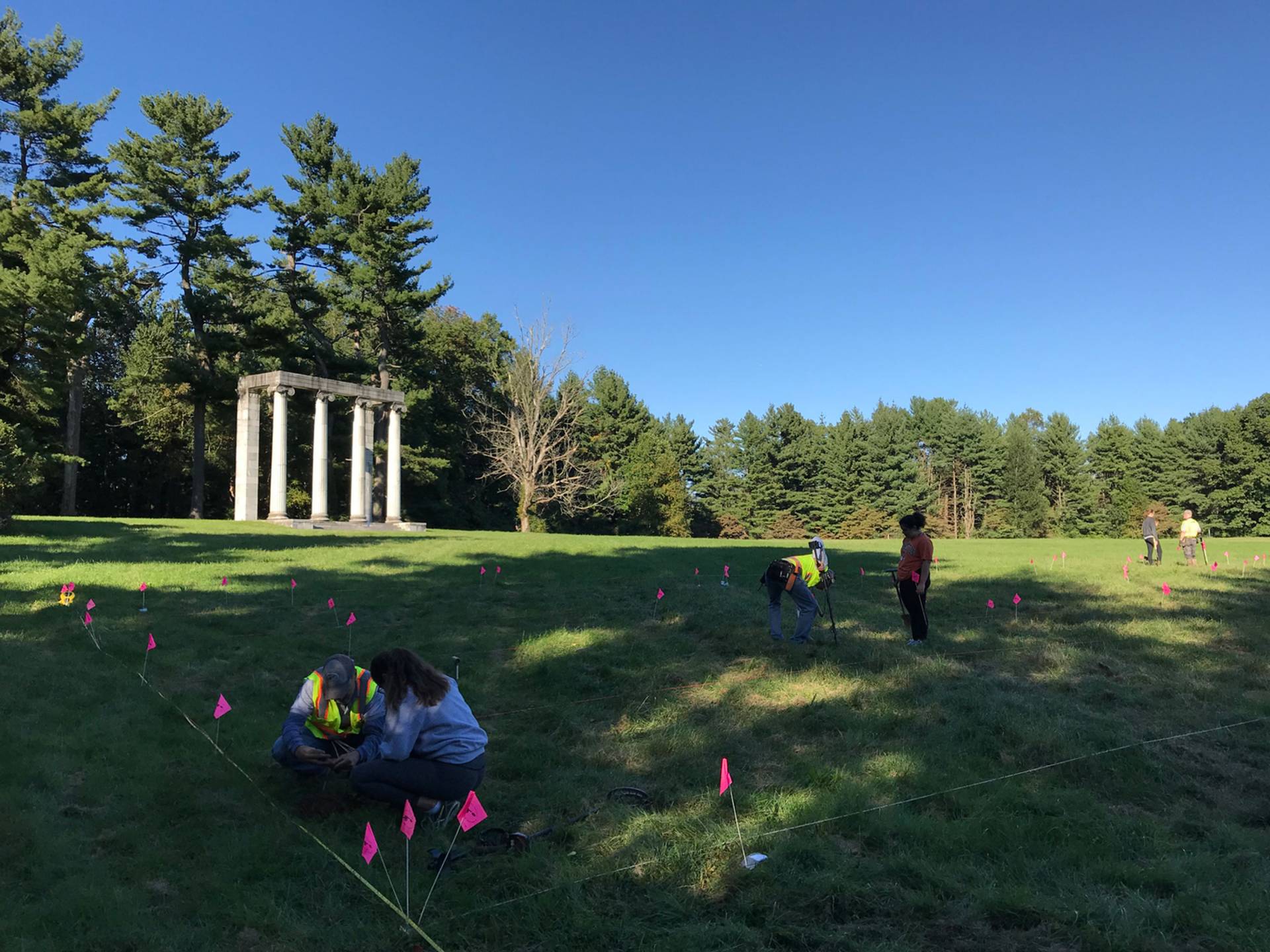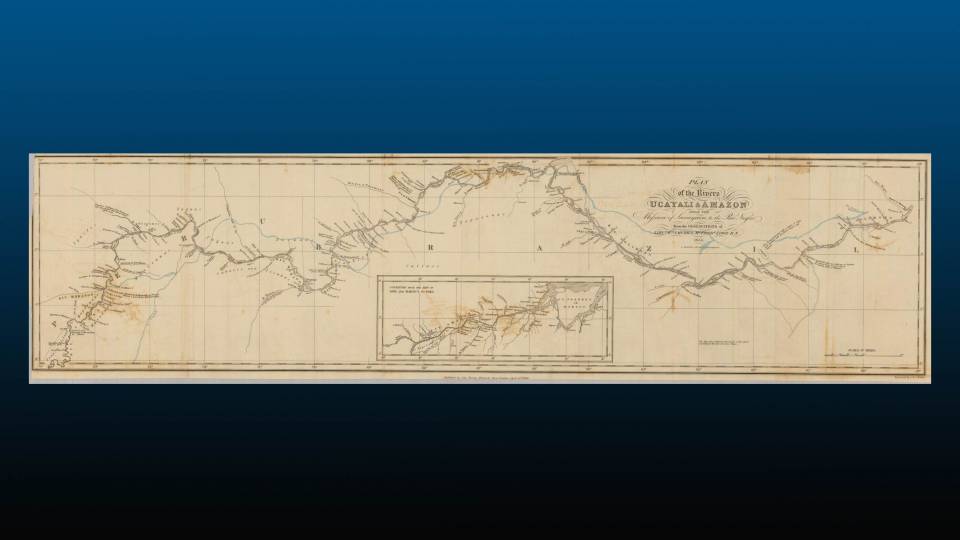Princeton University is the first U.S. institution to join the international "Being Human" festival this fall, with a month of hands-on workshops, lectures and activities with the theme "Origins and Endings." Artist Dan Landau leads a paper-cutting class on Nov. 26.
This fall, Princeton University will become the first U.S institution to join the international “Being Human: A Festival of the Humanities.”
The annual festival, which originates in the U.K., brings humanities research to life through hands-on workshops, lectures and activities. Organized by the Humanities Council, programming at Princeton — with the theme “Origins and Endings” — will run from Nov. 10 through Dec. 7.
Presentations and family events range from the delicate of art of paper cutting to archaeology on the Princeton Battlefield. Other activities include a showing of artifacts of slavery in North and South America; a documentary screening; a tour of the "Nature’s Nation" exhibition at the Princeton University Art Museum, tailored through the lens of New Jersey’s organic farming community; and a symposium on the impact of climate change on indigenous communities.

University and community members are invited to participate in excavation, metal-detection, ground-penetrating radar and artifact study in Princeton Battlefield State Park during Public Archaeology Day on Nov. 10.
Esther Schor, the Leonard L. Milberg '53 Professor of American Jewish Studies, professor of English and acting chair of the Humanities Council, spearheaded Princeton’s involvement in the festival. “Launching the first 'Being Human' festival in the United States, the Humanities Council engages Princeton in a worldwide celebration of the humanities, with a focus on collaboration between the University and the community," she said. "Undergraduate students, graduate students, faculty and members of the community are coming together to roll up our sleeves, jointly make and do, and enjoy the exchange of ideas and insights.”
“It has become very clear that we share a fundamental belief in the need to connect research in the humanities to everyday life and to demonstrate its relevance beyond the academy," said Sarah Churchwell, a 1998 graduate alumna and director of the Being Human festival at the School of Advanced Study, University of London. “'Being Human' works with universities around the world to do this, and we are very excited that Princeton will be the first university in the United States to host a program of festival activity in 2018.”
All events are free and open. Some require online registration. Community partners include Labyrinth Books, Princeton Battlefield Society, Princeton Garden Theatre, Princeton Public Library and Stuart Country Day School of the Sacred Heart.

Janet Kay, lecturer in the Humanities Council and history, leads a Nov. 15 workshop, “Studying the Past by Digging in the Dirt," giving attendees the opportunity to have hands-on experience with archaeological materials, including this model printed from 3-D-scans of the human skeletal remains of a 40-year-old man who was buried in a late-Romano-British cemetery in Oxfordshire, England.
Programming highlights:
- Saturday, Nov. 10, 9 a.m.-3 p.m., Princeton Battlefield. "Public Archaeology Day." Join students, faculty and professionals in the archaeological and historical exploration of the Princeton Battlefield. What are the material traces of the Battle of Princeton? How can battle remains be recovered and interpreted? How might the cultural landscape be presented and preserved? Come and participate in excavation, metal-detection, ground-penetrating radar and artifact study, and learn firsthand what archaeology is all about. All ages are welcome; no experience required.
- Monday, Nov. 12, 7:30 p.m., Princeton Garden Theatre, 160 Nassau St. Princeton Clay Project presents a screening of "MATANGI/MAYA/M.I.A." and discussion with the film’s producer, Lori Cheatle. The documentary is a personal profile of critically acclaimed artist M.I.A, chronicling her journey from Sri Lankan refugee in London to pop star. A post-screening talk back with Cheatle and the audience will examine the film’s example of diasporahood and local migration activism. Snacks and drinks will be provided prior to the showing.
- Thursday, Nov. 15, 5:30 p.m., 105 Chancellor Green. "Studying the Past by Digging in the Dirt." How do we study history? How can we use archaeology to understand how people lived in the past? In this workshop, led by Janet Kay, lecturer in the Humanities Council and history, you will be introduced to the principles of archaeological excavation. Learn how to think with the materials that humans leave behind, what burial practices can tell us about societies and cultures, and the importance of the careful use of scientific data. You will also have the chance to participate in a mini-excavation, as we “dig” away at some delicious cake and practice your new skills.
- Monday, Nov. 26, 6:15-7:45 p.m., Labyrinth Books, 122 Nassau St. An Evening of Paper Cutting with Dan Landau. Have you ever made a snowflake with folded paper and scissors in school? If so, you’ve engaged in the ancient art of paper-cutting. This art form has been around since the Chinese invented paper and has been infinitely adapted by different artists and cultures. Learn about the history of paper-cutting, as well as how to cut paper into artworks with contemporary artist, Dan Landau. Participants will receive materials, templates and hands-on instruction. No experience is necessary, and the class is open to all community members aged 16 and older. Space is limited, and online registration is required.
- Friday, Nov. 30, 4-6:30 p.m., 161 Louis A. Simpson Building. "Slavery in Princeton and Brazil." Talks focused on the experience of captivity in northern states in the U.S. and on the way Americans witnessed slavery in Brazil (the last country to abolish enslaved labor in the late 1880s) by Princeton High School student Andre Biehl and Miqueias Mugge, a postdoctoral research associate in Princeton's Brazil Lab. Participants will also visit Princeton’s Rare Books and Special Collections, where librarian Fernando Acosta-Rodríguez will present documents on slavery. Refreshments will be offered.
- Thursday, Dec. 6, 5 p.m., Princeton University Art Museum. "Examining an Agricultural 'Nation’s Nature.'" Agriculture has long dominated human consciousness and animated national expansion efforts. Members of the Northeast Organic Farming Association of New Jersey will join Princeton students and faculty for a special tour of the art museum’s exhibition "Nature’s Nation: American Art and the Environment." The tour will examine the role of agriculture in the collection and in the American imagination. A dinner will follow.
- Thursday and Friday, Dec. 6 and 7, Princeton Public Library and the Woodrow Wilson School of Public and International Affairs. "The International Symposium on Indigenous Communities and Climate Change." This conference brings together activists, journalists, scholars and area high school students to discuss impacts climate change is creating on indigenous communities and how the communities are making known evidence of change in the biomes they call home. The conference is organized by the Humanities Council Fund for Canadian Studies, the Program in Journalism and the Princeton Environmental Institute. Register online for the Dec. 6 session at the Princeton Public Library.







